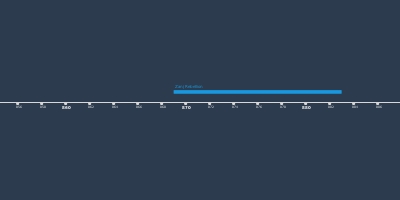Decian persecution (jan 23, 250 – feb 3, 251)
Description:
The Decian persecution of Christians occurred in 250 AD under the Roman Emperor Decius. He had issued an edict ordering everyone in the Empire (except Jews, who were exempted) to perform a sacrifice to the Roman gods and the well-being of the emperor. The sacrifices had to be performed in the presence of a Roman magistrate, and be confirmed by a signed and witnessed certificate from the magistrate. Although the text of the edict has been lost, many examples of the certificates have survived.Decius' edict was intended to act as an Empire-wide loyalty oath to the new emperor (who had come to power in 249 AD), sanctified through the Roman religion. There is no evidence that Decius sought to target Christianity specifically or initiate a persecution of its practitioners. Jews had been specifically exempted, demonstrating Decius' tolerance of other religions. Nevertheless, Christians were not similarly exempted, apparently because they were not considered to be a religion. Christian monotheistic beliefs did not allow them to worship any other gods, so they were forced to choose between their religious beliefs and following the law, the first time this had occurred.
An unknown number of Christians were executed or died in prison for refusing to perform the sacrifices, including Pope Fabian. Others went into hiding, whilst many apostatized and performed the ceremonies. The effects on Christians were long-lasting: it caused tension between those who had performed the sacrifices (or fled) and those who had not, and left bitter memories of persecution.
Added to timeline:
Date:
jan 23, 250
feb 3, 251
~ 1 years
